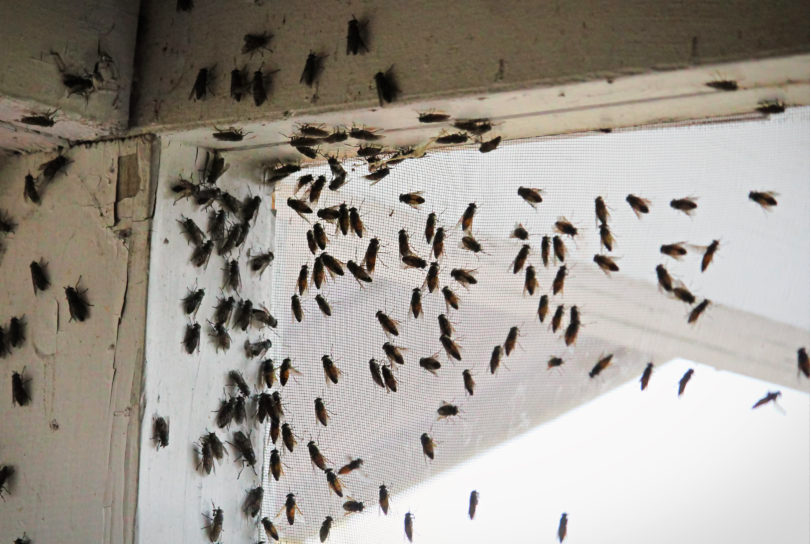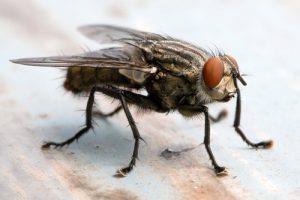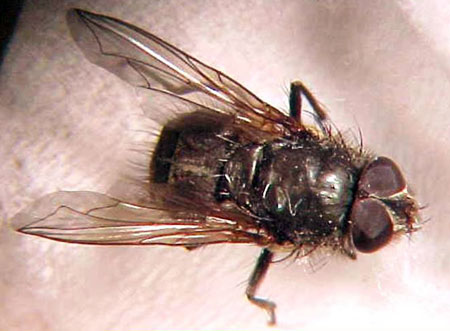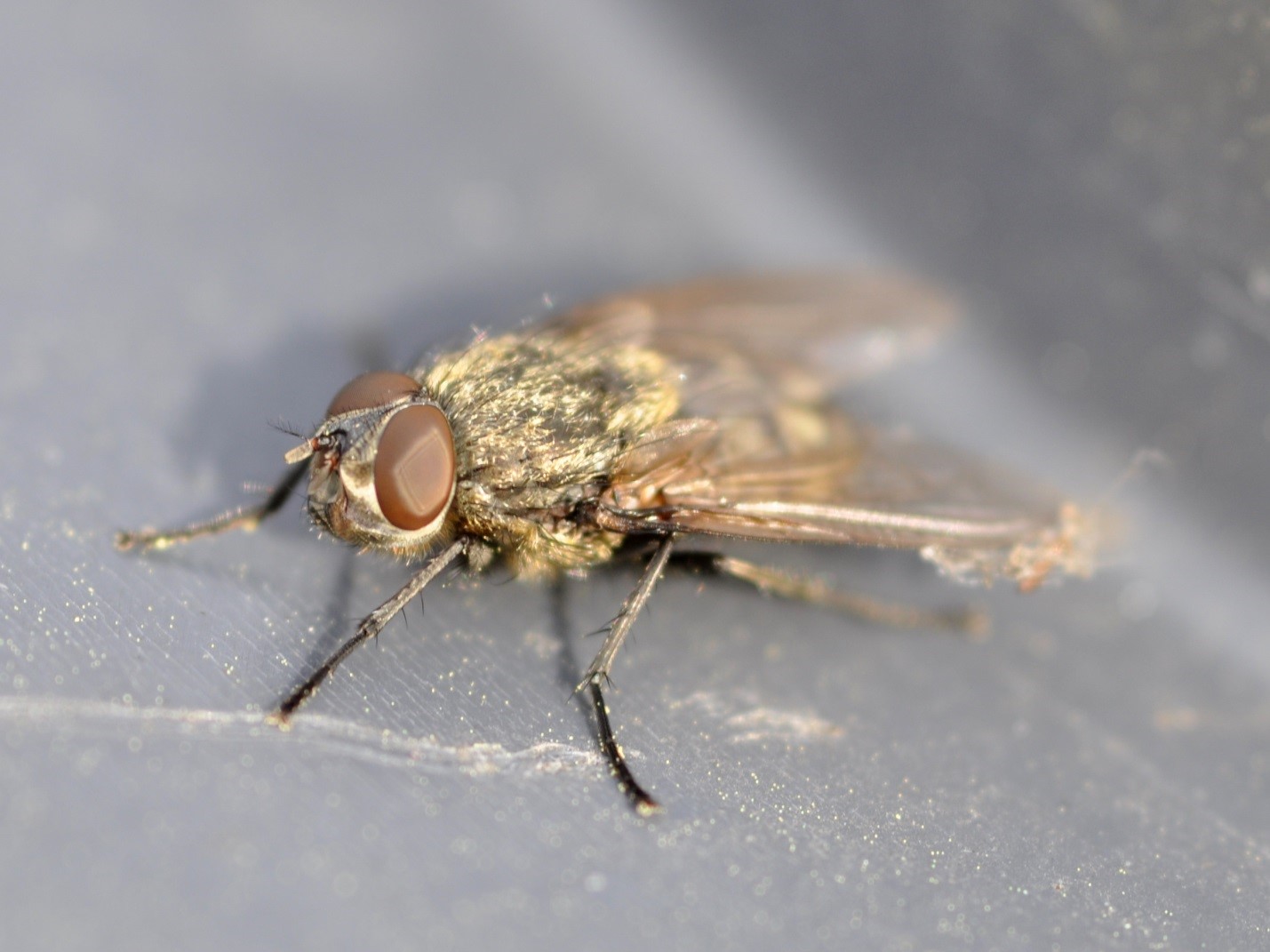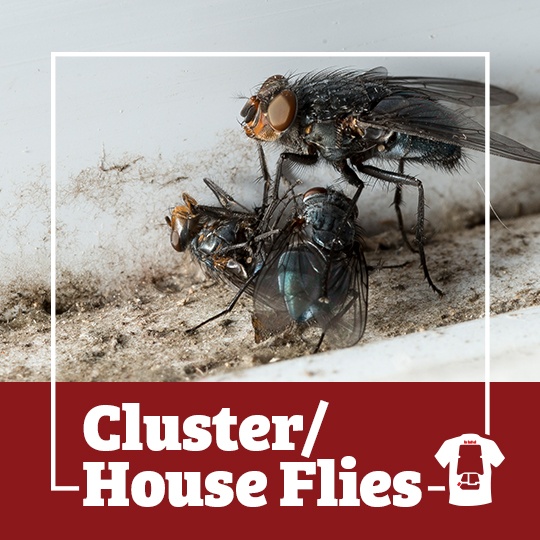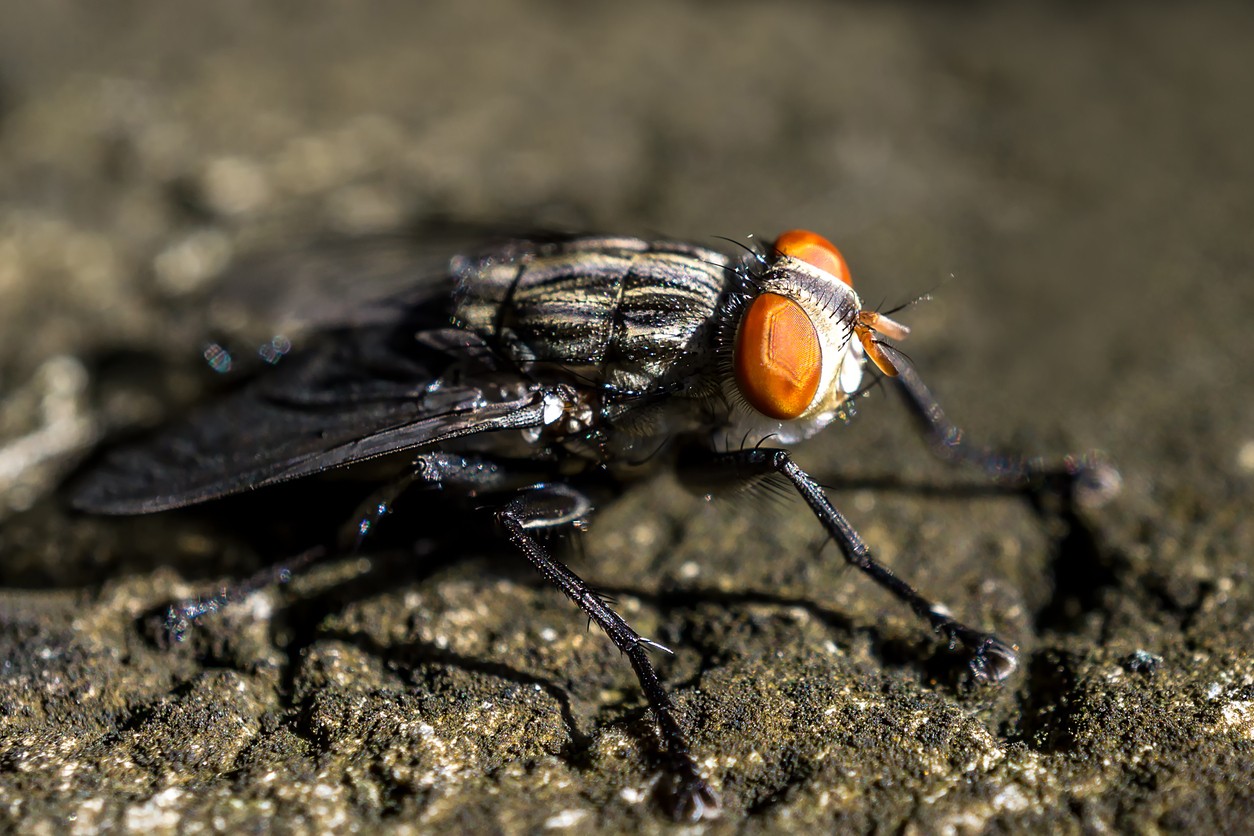Make sure to seal every possible hole or crack like around windows doors siding behind chimneys utility pipes underneath the fascia etc in the building.
Cluster flies behind the siding.
Replace the cap of the hand duster and turn the duster upside down so that the cap is facing the floor.
You are now ready to apply the dust around the home.
Select an insecticide dust labeled for cluster flies such as ecovia wd.
To get rid of existing cluster flies many people simply vacuum them up and empty the vacuum outdoors.
On the homes siding in the attic and deep in the wall voids where cluster flies like to nest should be dusted with drione dust.
Fill all the cracks or crevices in walls window or door frames with caulking.
It s easy to mistake any large fly for a house fly but cluster flies are visibly.
Using a crusader you can puff small amounts up under the exterior siding into any cracks or crevice common to log homes and into all crevices they might choose to use for hibernating.
This is the spot i ll dust most often for pests like scorpions or occasional roaches for ants i most often use a non repellant spray such as arilon termidor or other and don t even worry about getting a product up and under.
If the siding of the building is tight then the flies have less oppportunity to make their way into the structure.
To prevent cluster fly infestation you could use following tips.
You will have to repeat the process every two years.
The bottle or blow fly is much larger than cluster flies and significantly faster.
A contact pyrethrum spray like cb 80 which is approved for indoor use can help as well.
Unlike brick or wood homes the sugar particles which may not be detectable to the human eye stick to the vinyl siding causing flies to gather.
You can easily tell the two apart by the metallic sheen of a bottle fly vs.
The cluster fly is a parasite of earthworms and in the spring and summer they breed outdoors in fields and lawns.
With brick or stucco siding you can concentrate on the cracks and holes.
Cluster flies pollenia rudis also known as attic flies are those large sluggish and noisy flies you find clustered in large numbers around your windows on warm sunny days in the winter and spring.
Cluster flies vs house flies.
Based on casual observations cluster flies seem to be attracted to light colored buildings.
Cluster flies especially love decomposing food and sweets.
That s why adding it to house paint is not such a good option.
Insects such as flies are naturally drawn to vinyl siding because vinyl siding attracts build up of airborne sugar particles from nearby trees plants and brush.
To prepare for the next season you can spray areas where you suspect these pesky flies will cluster.
The dull colors and yellowish thoraxial hairs of the cluster fly.
On warm days in early winter or when homeowners turn on indoor heat the flies become active and move toward the warmth.


